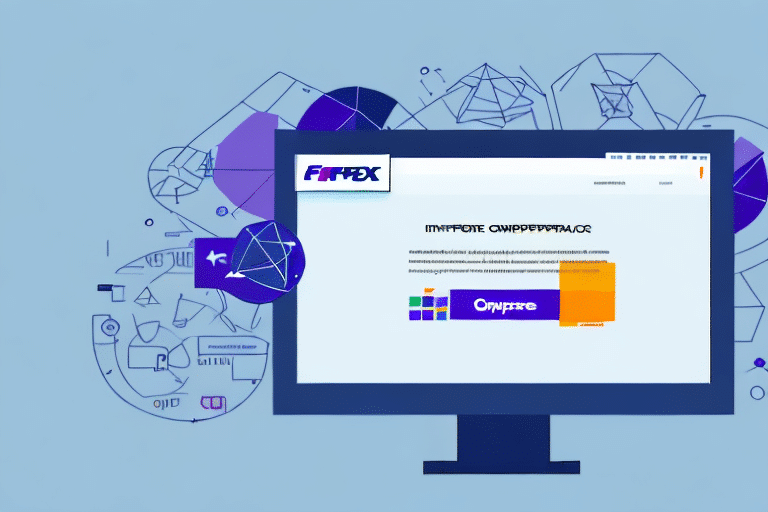Understanding Software Incompatibilities with FedEx Ship Manager
In the rapidly evolving digital landscape, software incompatibility issues can disrupt business operations, particularly in shipping logistics. FedEx Ship Manager is a crucial tool for businesses aiming to streamline their shipping processes. However, like any software, it can encounter compatibility challenges with operating systems and other installed applications. These incompatibilities may lead to delivery delays, increased costs, and customer dissatisfaction. This article explores the common causes of software incompatibilities with FedEx Ship Manager and provides actionable solutions to identify and resolve these issues.
Common Causes of Incompatibility with FedEx Ship Manager
Outdated Software and Operating Systems
One primary reason for incompatibility is the use of outdated versions of FedEx Ship Manager or operating systems. As software evolves, newer versions often require updated system specifications to function correctly. According to a ZDNet report, keeping software updated is essential for security and compatibility.
Conflicts with Other Installed Software
FedEx Ship Manager may clash with other applications installed on your computer, especially if they access similar system resources. These conflicts can result in crashes or malfunctioning features. Identifying and managing such software conflicts is crucial to maintaining smooth shipping operations.
Peripheral Device Drivers
Outdated or incompatible drivers for peripheral devices like printers and barcode scanners can hinder the functionality of Ship Manager. Ensuring that all peripheral drivers are up-to-date and compatible with the current version of Ship Manager is vital.
Network Connectivity Issues
Reliable internet connectivity is essential for FedEx Ship Manager to operate effectively. Network interruptions or slow connections can cause synchronization problems, leading to errors in shipping data and delays in processing orders.
User Errors
Incorrect usage of the software, such as not following proper installation procedures or misconfiguring settings, can also lead to compatibility issues. Comprehensive training and adherence to user manuals can mitigate these risks.
The Importance of Compatibility Testing
Compatibility testing is an indispensable aspect of software deployment, ensuring that FedEx Ship Manager operates seamlessly within your existing IT infrastructure. This process involves evaluating the software against various operating systems, device drivers, and other applications to identify and rectify potential conflicts before they impact business operations.
Benefits of Comprehensive Testing
- Reduced Downtime: Early identification of compatibility issues prevents unexpected software failures.
- Cost Efficiency: Avoids the need for emergency fixes and expensive hardware or software upgrades.
- Enhanced Customer Satisfaction: Reliable shipping processes lead to timely deliveries and satisfied customers.
Industry reports highlight that businesses investing in thorough compatibility testing experience fewer disruptions and maintain higher operational efficiency (Gartner).
Identifying Incompatible Software and Devices
Assessing System Requirements
Begin by consulting the FedEx Ship Manager system requirements to ensure your hardware and operating system meet the necessary specifications. This includes verifying processor speed, memory, and storage capacities.
Evaluating Peripheral Compatibility
Ensure that all peripheral devices, such as printers and scanners, have drivers that are compatible with the current version of Ship Manager. Manufacturers typically provide updates and compatibility information on their official websites.
Software Conflict Checks
Identify and manage any software that might conflict with FedEx Ship Manager. This can be achieved by running diagnostic tools or consulting with IT professionals to ensure harmonious operation of all applications.
Resolving Software Incompatibility Issues
Updating Software and Drivers
Maintain the latest versions of FedEx Ship Manager and your operating system. Regular updates often include patches that resolve known compatibility issues. Additionally, keep all peripheral device drivers current by visiting the manufacturers' official websites.
Reinstalling FedEx Ship Manager
If compatibility issues persist, consider reinstalling FedEx Ship Manager. This process can resolve installation-related problems and ensure that the software is correctly integrated with your system.
Consulting Technical Support
When faced with persistent issues, reaching out to FedEx technical support can provide specialized assistance. They can offer tailored solutions and guide you through advanced troubleshooting steps.
Best Practices for Maintaining Compatibility
- Regular Updates: Schedule routine updates for FedEx Ship Manager and all related software to ensure ongoing compatibility.
- Comprehensive Training: Equip your team with the necessary knowledge to use FedEx Ship Manager effectively, minimizing user-induced errors.
- Proactive Monitoring: Implement monitoring tools to detect and address potential compatibility issues before they escalate.
Leveraging Technology to Enhance Shipping Efficiency
Embracing advanced technologies can significantly boost the efficiency of your shipping operations with FedEx Ship Manager. Tools such as automated shipping systems, real-time tracking, and analytics can provide valuable insights and streamline processes.
Automation and AI Integration
The integration of artificial intelligence can optimize routing, predict shipping delays, and enhance overall operational efficiency. According to a Forbes article, AI-driven solutions are revolutionizing logistics by reducing human error and improving delivery times.
Real-Time Analytics
Utilizing real-time analytics allows businesses to monitor shipping performance, identify bottlenecks, and make informed decisions to enhance service quality and efficiency.
Future Trends in Shipping Technology
As technology advances, FedEx Ship Manager is expected to incorporate more sophisticated features to meet the evolving needs of businesses. Anticipated developments include enhanced AI capabilities, improved integration with e-commerce platforms, and greater emphasis on sustainability.
Staying abreast of these trends enables businesses to adapt proactively, ensuring that their shipping operations remain competitive and efficient in the marketplace.
Conclusion
Ensuring compatibility between FedEx Ship Manager and your existing systems is crucial for maintaining efficient shipping operations. By understanding the common causes of incompatibility, implementing thorough testing, and adhering to best practices, businesses can mitigate potential disruptions. Additionally, leveraging emerging technologies can further enhance shipping efficiency, positioning your business for sustained success in a competitive landscape.






















